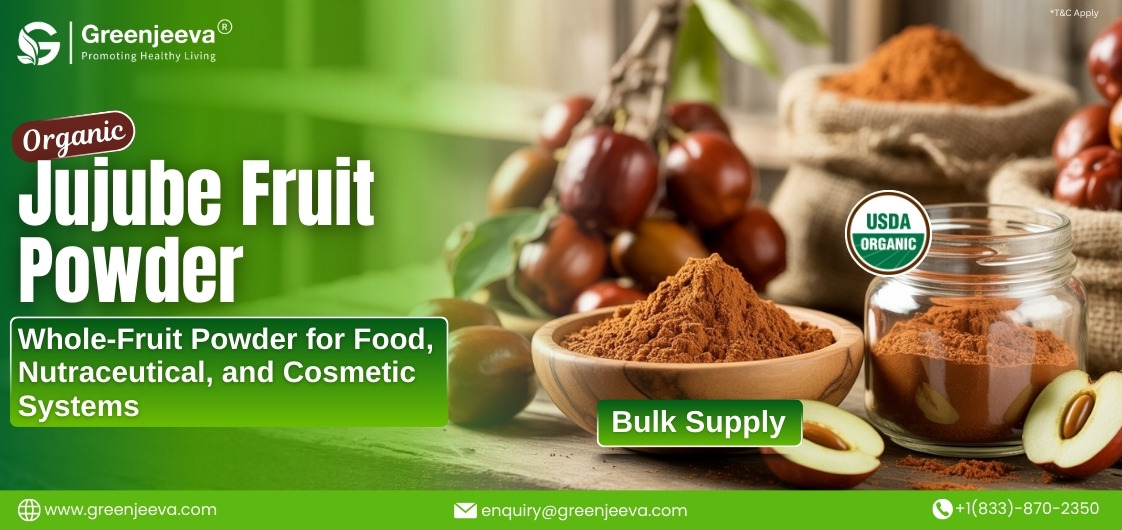Specialty and Ethnic Foods: A Guide to Raw Materials for Contract Manufacturers

Specialty and ethnic foods have recently gained popularity as consumers seek out new and unique flavors worldwide. As a B2B buyer in the dietary ingredients industry, it's important to understand the trends and demand for specialty and ethnic foods.
In this blog post, we'll explore what specialty and ethnic foods are, their benefits, and how you can incorporate them into your business.
What are Specialty and Ethnic Foods?
Specialty and ethnic foods are products with unique ingredients, flavors, or preparation methods not commonly found in mainstream food products.
These foods are typically associated with a specific cultural or regional cuisine, such as Indian, Thai, or Mediterranean. Examples of specialty and ethnic foods include spices, herbs, sauces, condiments, grains, and other food products.
The Benefits of Specialty and Ethnic Foods Specialty and ethnic foods have several benefits for consumers and businesses.
For consumers, these foods offer a wide range of flavors and taste experiences that can't be found in traditional foods. They also offer health benefits. For businesses, incorporating specialty and ethnic foods into your product offerings can help you differentiate your brand, attract new customers, and expand your market reach.
Incorporating Specialty and Ethnic Foods into Your Business.
If you're a B2B buyer looking to incorporate specialty and ethnic foods into your business, there are several steps you can take.
First, conduct market research to identify which specialty and ethnic foods are in high demand. This will help you decide which products to source and which markets to target.
Next, source high-quality products from reputable suppliers specializing in specialty and ethnic foods.
Finally, develop marketing strategies highlighting these products' new flavors and benefits to attract new customers.
Exploring the World of Specialty and Ethnic Foods: A Guide for B2B Buyers
As a contract manufacturer of specialty and ethnic foods, procuring the right raw materials is essential for creating high-quality products that meet your customers' needs.
Knowing which raw materials to choose can be challenging with a wide variety of raw materials available. This guide will explore the most commonly used raw materials for specialty and ethnic food production and their unique properties and applications.
Spices and Herbs:
- Spices and herbs are essential ingredients in most specialty and ethnic foods. They add flavor, aroma, and color to dishes and often have medicinal properties.
- Some of the most popular spices and herbs in specialty and ethnic food production include cinnamon, cumin, turmeric, ginger, coriander, and cardamom.
Flours and Grains:
- Flours and grains are the foundation of many specialty and ethnic foods. They provide texture, structure, and nutrition to dishes.
- Common flours and grains include wheat, corn, rice, and millet. Gluten-free options like almond flour and coconut flour are also gaining popularity.
Nuts and Seeds:
- Nuts and seeds are nutrient-dense ingredients that add crunch and flavor to specialty and ethnic foods.
- Some of the most commonly used nuts and seeds in specialty and ethnic food production include almonds, cashews, sesame, and poppy seeds.
Fruits and Vegetables:
- Fruits and vegetables are vital nutrients, flavor, and color sources in specialty and ethnic foods.
- Some commonly used fruits and vegetables include tomatoes, onions, garlic, peppers, mangoes, and papayas.
Dairy Products:
- Dairy products like cheese, yogurt, and cream are essential ingredients in many specialty and ethnic foods, adding creaminess and tanginess to dishes.
- Dairy-free options like coconut milk and cashew cheese are becoming increasingly popular among consumers.
Sauces and Condiments:
- Sauces and condiments like soy sauce, fish sauce, salsa, and chutney are vital flavoring agents in many specialty and ethnic foods.
- They add depth, umami, and acidity to dishes and are often used as dipping sauces or marinades.
Also read: https://www.greenjeeva.com/blog/stevia-a-guide-to-the-best-sugar-alternative
Are You Searching for A Dependable Supplier of These Ingredients?
Look no further than Green Jeeva. As a leading provider of wholesale natural ingredients, Green Jeeva streamlines the global supply chain for the nutraceutical industry. We handle all the necessary tasks, allowing you to focus on your core business. We ensure the prompt delivery of genuine products with proper documentation. Green Jeeva maintains a ready inventory and offers free shipping worldwide for large orders.
In conclusion, choosing the right raw materials for specialty and ethnic food production is crucial for creating high-quality products that meet your customers' needs. Contract manufacturers can create authentic and delicious dishes that stand out in a crowded market by understanding each raw material's unique properties and applications.
Disclaimer:
**These statements have not been evaluated by the Food and Drug Administration. This product is not intended to diagnose, treat, cure, or prevent any disease.**






